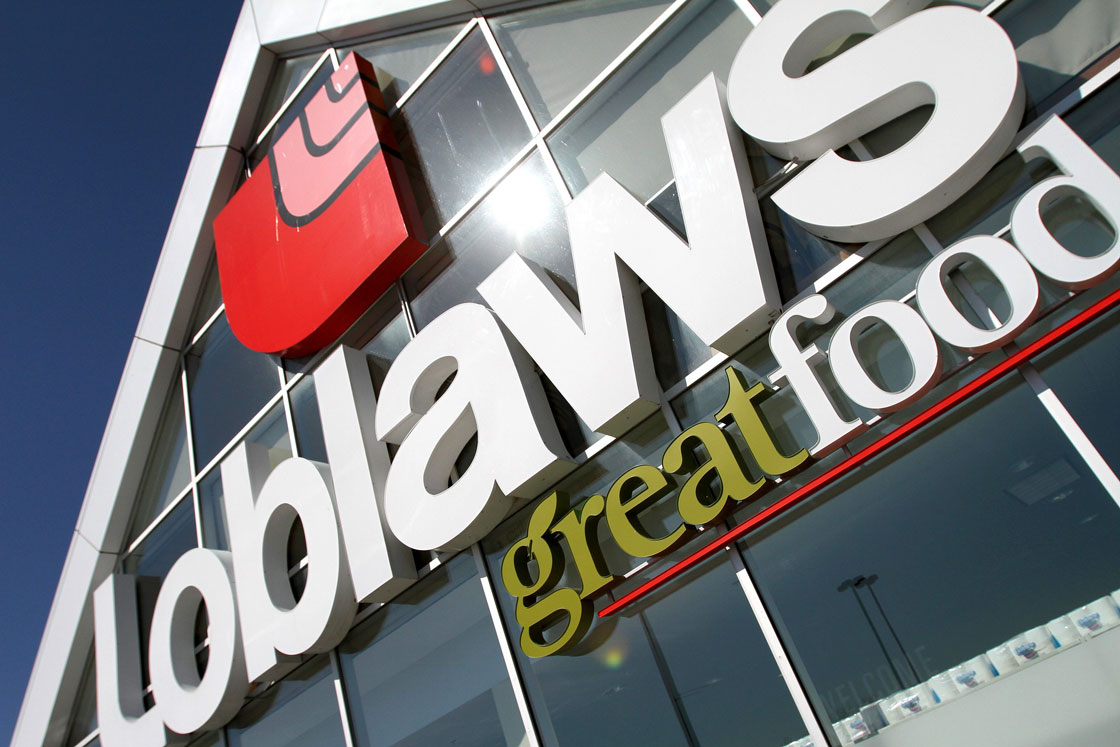Rising competitive tensions between big Canadian grocers and U.S. discount chains this year may benefit shoppers through lower prices, but they’re taking a steep toll on thousands of frontline clerks and cashiers as corporate owners like Loblaw Cos. Ltd. and Metro Inc. demand sharp wage rollbacks.

The arrival of U.S. discount retailer Target Corp. this spring combined with a deeper push from Walmart Canada into the retail food business is putting new pressures on traditional grocers to cut costs, industry watchers say.
To guard profits – and indeed to grow them – in the current environment, store owners are restructuring operations and implementing deep cuts to workers’ pay.
“To maintain and grow profitability, there’s enormous pressure to reduce costs,” Keith Howlett, analyst at Desjardins Securities said. “The pain is coming out of wages.”
Alberta strike looms
Unionized workers at Loblaw-owned stores in Alberta and Saskatchewan are locked in labour negotiations with Loblaw, and in Alberta a strike deadline of Oct. 6 has been set.
“We’re walking out at 12:01 a.m. short of a miracle,” said Tom Hesse, chief negotiator for United Food and Commercial Workers Local 401 in Alberta, which represents about 8,000 workers. “We’re so far apart.”
Loblaw’s current offer calls for a reset of hourly rates for most staff to between $11.65 and $14.65 an hour from the current $11.65 to $24.24, according to Hesse. Compensation for full-time staffers would be capped at $16.45, he said. Hours are also being targeted for rollbacks.
Hesse said wages in Alberta can’t be benchmarked against other provinces where the cost of living is lower.
“We’re in a growth province, that’s a very important variable for us,” he said.
“Our position is that we have a responsibility to our colleagues and to our business to make sure the collective agreement we negotiate allows us to remain competitive now and in the future,” Loblaw spokesperson Julija Hunter said in an email message.
“We want our customers and colleagues to know that we are committed to focusing on reaching a deal through negotiations – not through a strike,” Hunter added.
Wage cuts in Ontario
Meanwhile in Ontario, Metro is renegotiating labour contracts at 15 stores in the province while converting some to its Food Basics banner.
Union officials representing the 1,500 or so workers at the affected stores say staffers, some of whom have been with Metro for years and are earning maximum wages of between $14 and $24 an hour, are faced with the choice of rolling their hourly rate back by close to a third or walking away with a lump sum payment.
“We just met with somebody yesterday with 10 years of service at a particular Metro that they’re converting. They were making $14.25,” Kellie Scanlan, a spokesperson for Unifor Local 414, said.
A spokeswoman for Metro said the company and Loblaw were the only food retailers in the province that are unionized.
A response to Walmart and Target
As non-unionized firms like Walmart and Target push deeper into selling grocery items like prepackaged foods and frozen goods, Metro is pressured to lower pay to keep rates in line with compensation at the discount competitors, industry experts say.
“The point of this decision that we’ve made is really to ensure we have the right store format in the market so we can remain competitive,” Metro spokesperson Marie-Claude Bacon said.
Analysts point out that consumers benefit from the presence of Walmart and others through lower prices.
Yet, “the flipside of every low price is a low wage,” Armine Yalnizyan, chief economist at the Canadian Centre for Policy Alternatives, said. “They go hand in hand.”
Economists like Yalnizyan note that the periodic resetting of wages by retailers isn’t a new tactic – its standard for retail businesses or any other for that matter when faced with escalating competition.
Experts note that the moves, alongside others like Loblaw’s proposed $12.4 billion takeover for Shoppers Drug Mart Corp. announced in July, are aimed at long-term growth that actually leads to future job creation.
“Some of the financing of these growth strategies come from wage rollbacks, if they can get them,” Yalnizyan said.
“Labour concessions financing capital expansion is not new – but its jarring nature never gets old.”


Comments